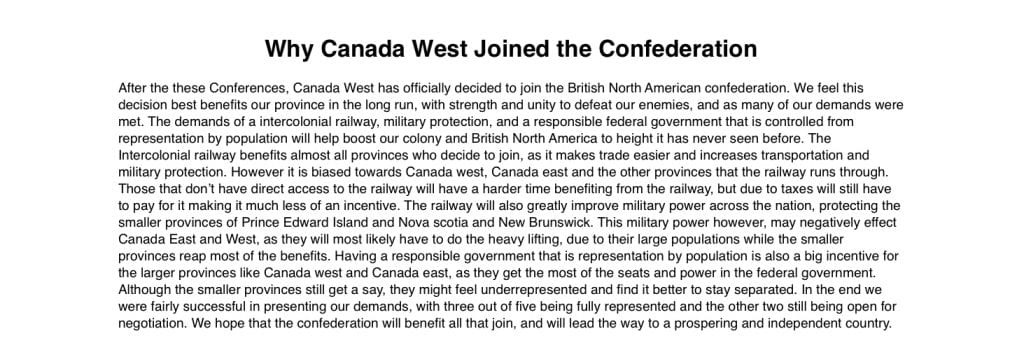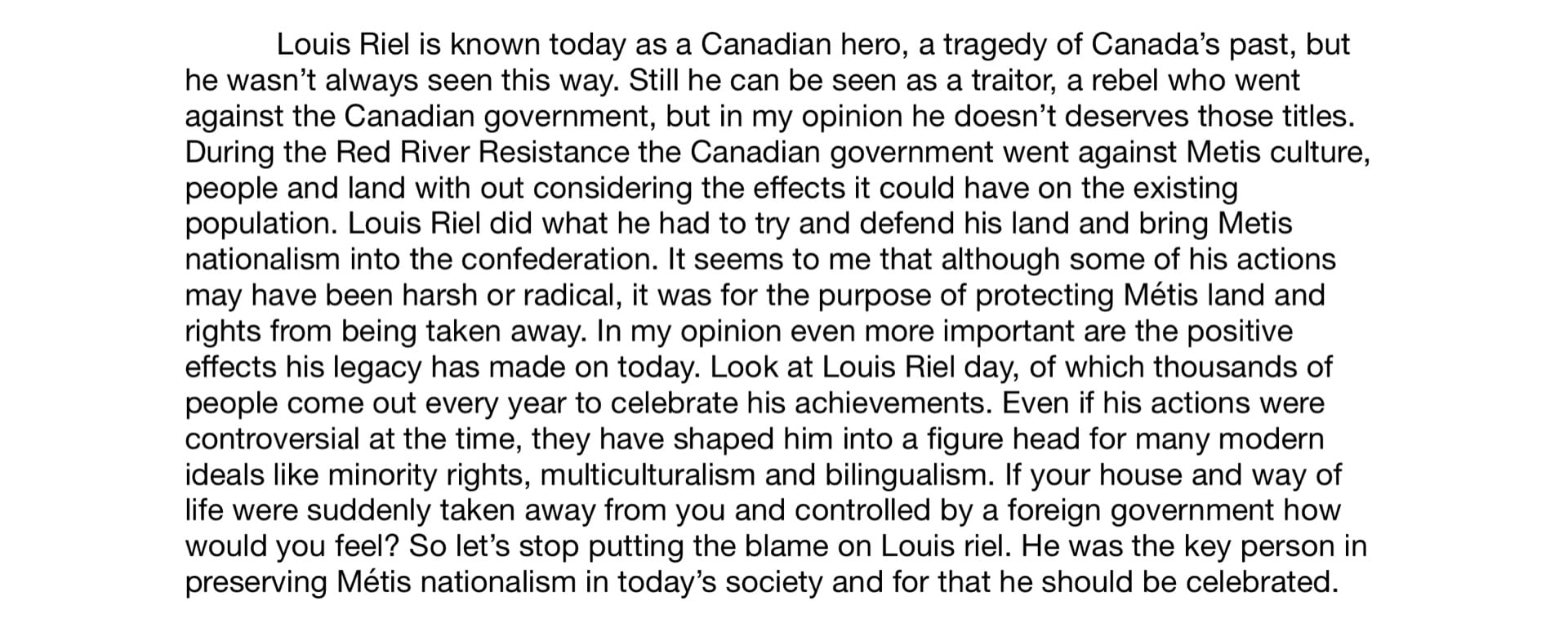How can an understanding of nationalism of the past, help us make sense of today?
This was the driving question on our latest project, all about nationalism and using historical perspective to analyze how the actions in the past shaped what it is today. But what do nationalism or historical perspective actually mean. Well let’s find out!
We started off by talking about nationalism and identity using current events. I chose to do mine on the beginnings of the ongoing Russia Ukraine conflict, which ended up being really interesting, heartbreaking and scary at the same time. With my newfound knowledge, I then had to present it to a few other people. This presentation ended up going pretty well. I find that with enough knowledge I can pretty easily go through and re-tell the main points from memory. Still it was good to practice communicating clearly to others, and if I were to do it again I would try to ask more engaging questions, and overall try to be more interactive and concise to drive home my points.
This was also one of our first dives into the main focuses on this project, those being nationalism, identity and historical perspective. To flesh out these ideas we completed a nationalism jigsaw, as well as some textbook activities. By the end I had a pretty good idea of what nationalism was and how it can shape our world.
Once we learned about what nationalism is, we started to focus on Canada’s confederation, and the different perspectives at play. To do this we did a simulation where we were each split into groups that represented the different colonies wanting to join the confederation (I was put into Canada west). After researching what our colony needs, we made 5 preliminary proposals which were essentially demands for joining the confederation. We would then present these proposals to the the other colony’s after which the “queen” (who was Ms. Maxwell) would develop the final proposals for joining the confederation.
Seeing the final proposals, our group (Canada West) decided to join the Confederation as even though all of our demands were not completely satisfied we couldn’t see any big downside to joining. This was also an interesting activity to look at the different perspectives each colony had towards joining. At the end of the activity I wrote a reflective paragraph that explained these different perspectives and overall, this activity really helped strengthen my ability to use historical perspective to understand the different reasons why things happened in the past.

After this we got our actual topics that we would research for our instagram stories. I chose Louis Riel, for no particular reason other then he looked interesting. One of the biggest improvements during this project over others was my researching and note taking. Unlike my notes in the Revolution on Trial, I spent some time making sure my research was easily shown in my notes, and what a difference it made. Having notes that were actually readable and easy to navigate made a huge difference in quickly finding useful information (which is the entire point of taking notes). It also helped whenever I needed to fact check any of my sources, making it much easier to tell when a source is unreliable. Either way this was a big improvement over my mess of notes from last project, so I will definitely continue and refine this method of note taking in the future.
Once we actually understood our topic we started on the two different pieces of text that were going to be included in the Instagram post. Those included a picture/visual, and a caption to go along with it.
For the caption we all made our own, then came together to make one final version together. It ended up being quite a challenge to incorporate all we wanted to say in such a short word count but I think we did a good job. I’m also proud of our collaboration as we took parts from each individual caption to make the final one as good as possible
For the visuals we had to create 3 different images; a drawn on sketch, a quote, and a free choice for which I did a timeline.
I actually quite like how my images turned out. I feel that they portray the topic in an interesting and unique way, especially the quote which shows the different perspective. Unfortunately since this was a group project (I was in a group with Sylas and Cole) I could only choose one. We decided to use my timeline image because it was the best free choice image we had.
If you want to see their pictures and blog you can check them out here:
I did a few more revisions and also asked my group members for some feed back. To try make it look as good as possible I ended up adding more picture as well as making it very concise as to not overflow the image with words.

All Images and captions were also posted on instagram if you want to check more of them out!
View this post on Instagram
Finally after all this we created an opinion piece, which like the name says includes our opinion on our subject. I personally found it quite challenging to organize all my thoughts to form one solid opinion, especially since I was trying to think from each perspective. In the end, I’m happy with how it turned out but not completely satisfied. If I were to do it again I would have loved to include more direct evidence to support my opinion and also include a few more examples to really flush out my thoughts.

Now at last the driving question, How can an understanding of nationalism of the past, help us make sense of today? Understanding nationalism can help us understand many things of today. Using the topic of Louis Riel for example helps us understand the deep impacts his Métis nationalism had on the country of Canada. For example, the formation of Manitoba only makes sense because of Louis Riel. His death caused French Canadian nationalism to explode, most likely influencing which political party they voted for. In many ways understanding why nationalism brings people together can tell us a lot about our daily lives.
That concludes this project! I had a great time diving deep into each of my topics and learned a lot about how nationalism affected Canada’s past. I’m happy with the work I produced, although I feel each could be greatly benefited from some good feedback and revision.
See you next time,
Nolan🇨🇦









